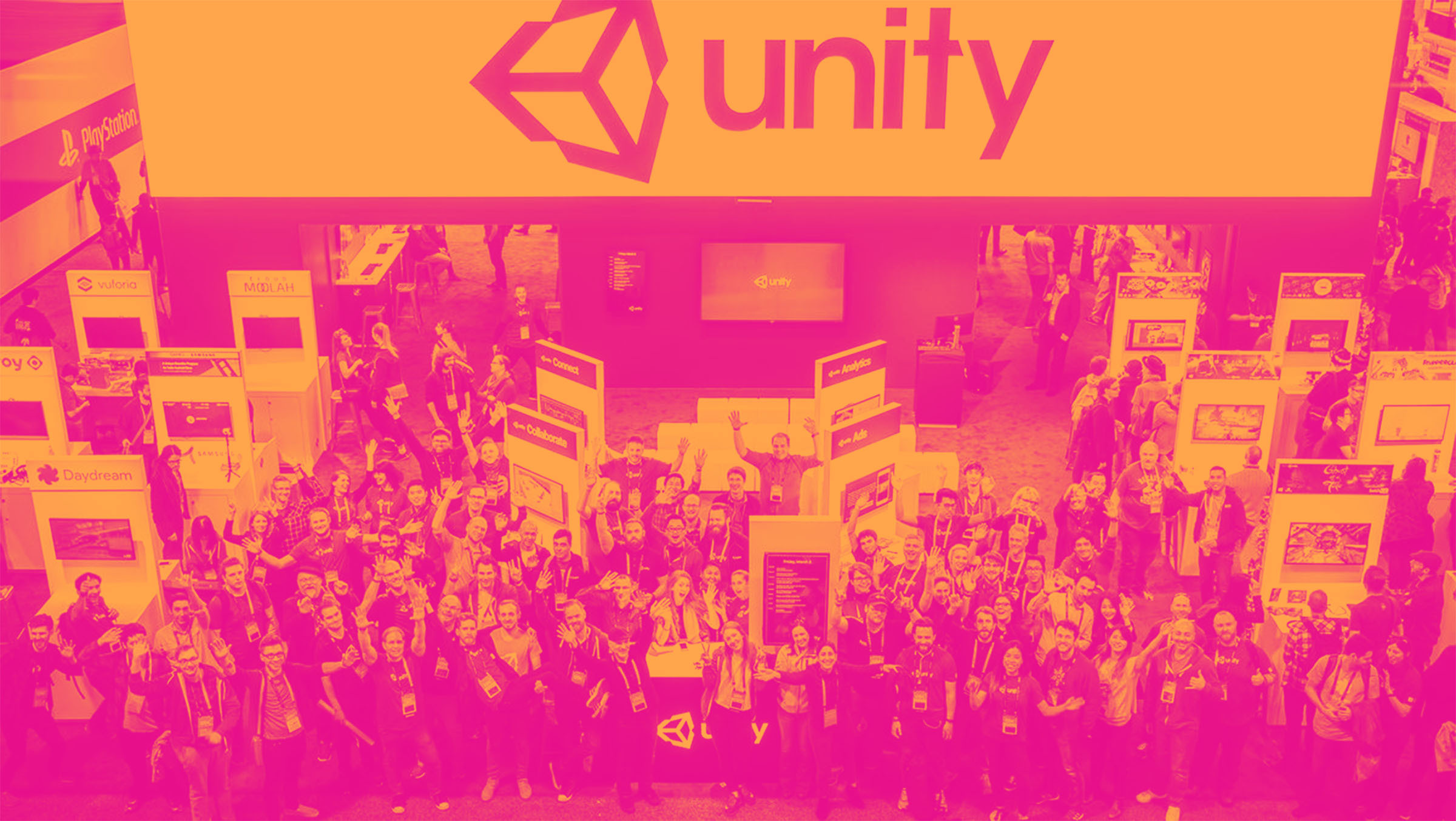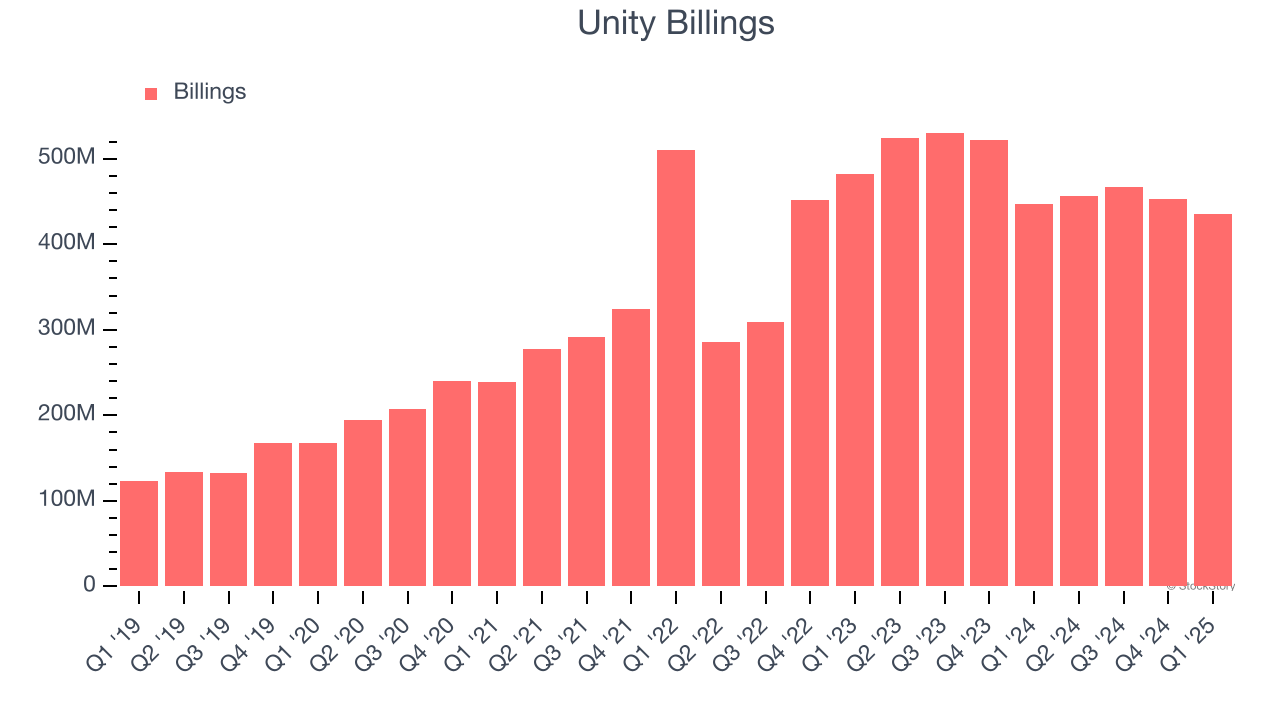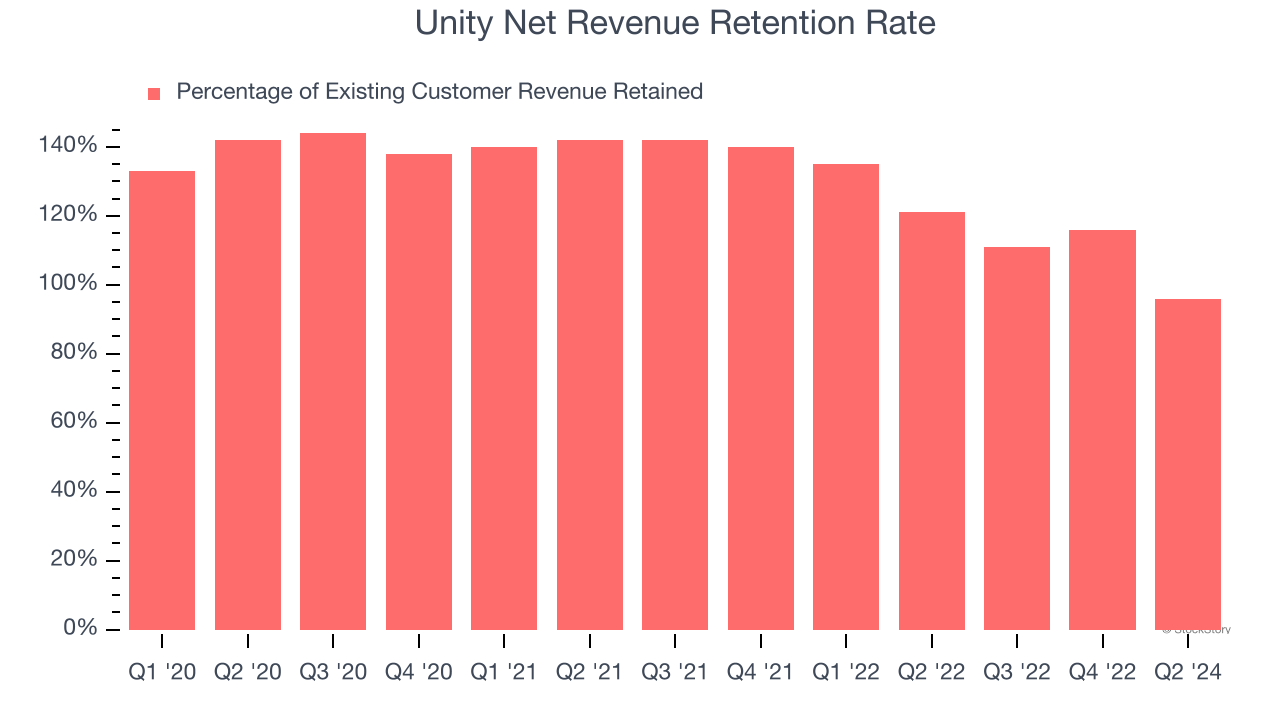
Unity has followed the market’s trajectory closely. The stock is down 6.2% to $25.93 per share over the past six months while the S&P 500 has lost 1.8%. This may have investors wondering how to approach the situation.
Is there a buying opportunity in Unity, or does it present a risk to your portfolio? Dive into our full research report to see our analyst team’s opinion, it’s free.
Why Is Unity Not Exciting?
Even with the cheaper entry price, we're cautious about Unity. Here are three reasons why there are better opportunities than U and a stock we'd rather own.
1. Declining Billings Reflect Product and Sales Weakness
Billings is a non-GAAP metric that is often called “cash revenue” because it shows how much money the company has collected from customers in a certain period. This is different from revenue, which must be recognized in pieces over the length of a contract.
Unity’s billings came in at $435.1 million in Q1, and it averaged 10.2% year-on-year declines over the last four quarters. This performance was underwhelming and shows the company faced challenges in acquiring and retaining customers. It also suggests there may be increasing competition or market saturation. 
2. Customer Churn Hurts Long-Term Outlook
One of the best parts about the software-as-a-service business model (and a reason why they trade at high valuation multiples) is that customers typically spend more on a company’s products and services over time.
Unity’s net revenue retention rate, a key performance metric measuring how much money existing customers from a year ago are spending today, was 96% in Q1. This means Unity’s revenue would’ve decreased by 4% over the last 12 months if it didn’t win any new customers.

Unity has a weak net retention rate, signaling that some customers aren’t satisfied with its products, leading to lost contracts and revenue streams.
3. Long Payback Periods Delay Returns
The customer acquisition cost (CAC) payback period measures the months a company needs to recoup the money spent on acquiring a new customer. This metric helps assess how quickly a business can break even on its sales and marketing investments.
Unity’s recent customer acquisition efforts haven’t yielded returns as its CAC payback period was negative this quarter, meaning its incremental sales and marketing investments outpaced its revenue. The company’s inefficiency indicates it operates in a highly competitive environment where there is little differentiation between Unity’s products and its peers.
Final Judgment
Unity isn’t a terrible business, but it doesn’t pass our bar. After the recent drawdown, the stock trades at 5.9× forward price-to-sales (or $25.93 per share). This valuation tells us a lot of optimism is priced in - we think there are better stocks to buy right now. Let us point you toward the most dominant software business in the world.
High-Quality Stocks for All Market Conditions
Donald Trump’s victory in the 2024 U.S. Presidential Election sent major indices to all-time highs, but stocks have retraced as investors debate the health of the economy and the potential impact of tariffs.
While this leaves much uncertainty around 2025, a few companies are poised for long-term gains regardless of the political or macroeconomic climate, like our Top 5 Strong Momentum Stocks for this week. This is a curated list of our High Quality stocks that have generated a market-beating return of 183% over the last five years (as of March 31st 2025).
Stocks that made our list in 2020 include now familiar names such as Nvidia (+1,545% between March 2020 and March 2025) as well as under-the-radar businesses like the once-small-cap company Exlservice (+354% five-year return). Find your next big winner with StockStory today.




